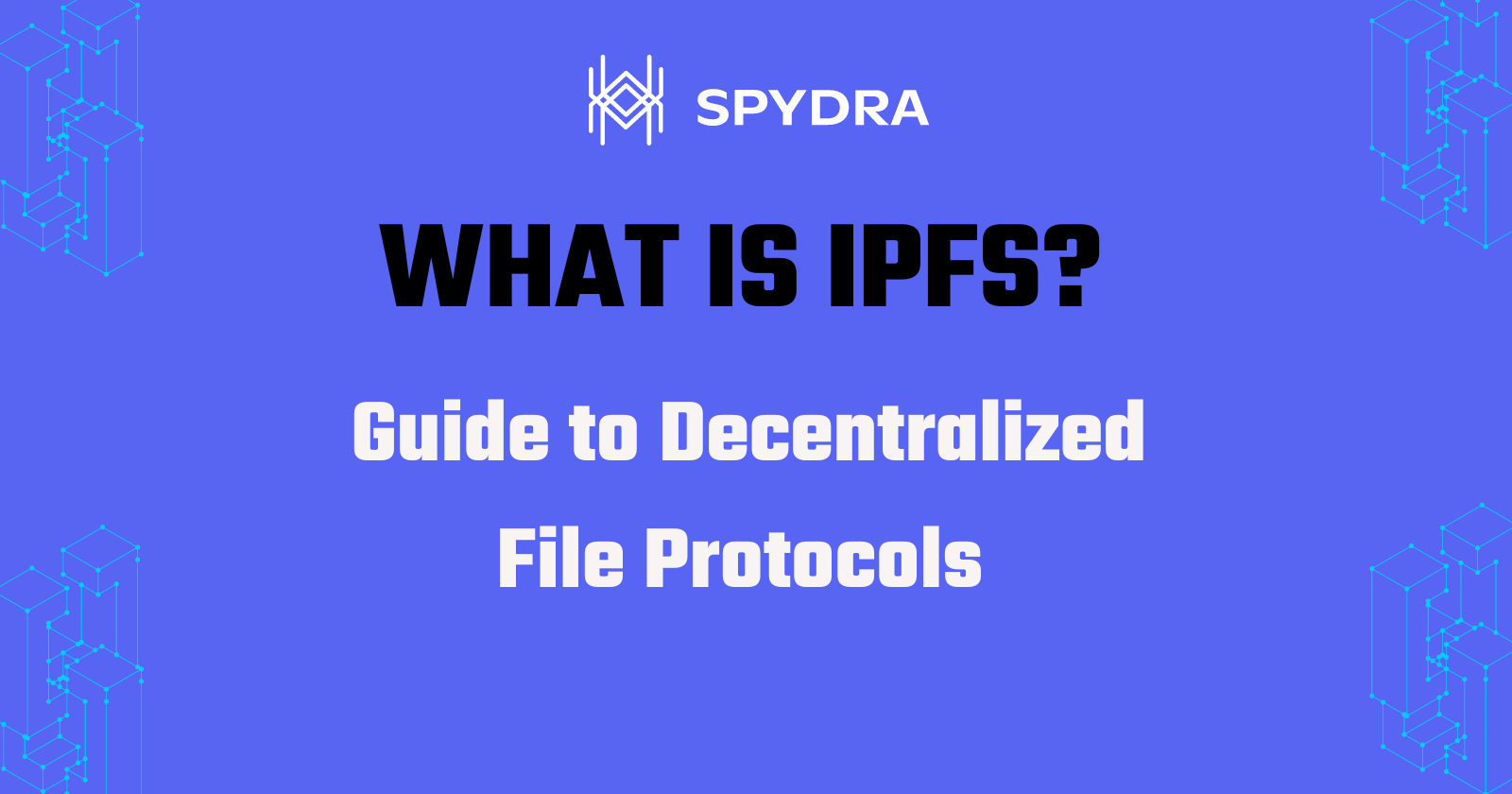What is IPFS? A Comprehensive Guide to Decentralized File Protocols
 Pravin
Pravin
Data storage and file sharing are crucial components of our everyday online activities. However, traditional methods of file storage, such as centralized servers, pose significant risks, including data breaches, censorship, and single points of failure. To counter these issues, decentralized protocols like the InterPlanetary File System (IPFS) have emerged as revolutionary solutions. But what is IPFS, and how does it transform file storage and sharing?
What is IPFS?
IPFS, or the InterPlanetary File System, is a decentralized protocol designed to make the web faster, safer, and more open. Unlike traditional file storage systems that rely on centralized servers, IPFS uses a peer-to-peer (P2P) network to store and share data. This means that files are distributed across multiple nodes (computers) in the network, ensuring greater security and redundancy.
With IPFS, files are not stored in a single location but are instead broken into smaller pieces and distributed across various nodes. When someone requests a file, the IPFS network retrieves these pieces from multiple nodes and reassembles them, making the process both efficient and secure. This decentralized approach ensures that even if some nodes go offline, the file remains accessible, preventing any single point of failure.
How Does IPFS Work?
To understand what makes IPFS unique, it's essential to explore its core components: content addressing and peer-to-peer networking.
Content Addressing: Unlike traditional URLs that point to a location on the internet, IPFS uses a method called content addressing. Each file is assigned a unique cryptographic hash, known as a Content Identifier (CID). This hash is a fingerprint of the file's content, ensuring its integrity and authenticity. If the file changes, even slightly, the CID will also change. This makes IPFS an ideal solution for ensuring data integrity and preventing unauthorized alterations.
Peer-to-Peer Networking: IPFS operates on a P2P network, which means that files are shared directly between users without the need for intermediaries. When a file is requested, IPFS searches for the nodes that store the required data and retrieves it from them. This decentralized nature enhances security and privacy, as data is not stored on a single server that can be easily targeted by malicious actors.
Benefits of IPFS for File Storage
The rise of IPFS and similar decentralized protocols offers several advantages over traditional file storage methods:
Enhanced Security and Privacy: Because IPFS distributes files across a network of nodes, it minimizes the risk of data breaches and unauthorized access. Moreover, since the data is not stored in a centralized location, there is no single point of vulnerability.
Reduced Costs: Traditional cloud storage services often come with significant costs for bandwidth and storage space. With IPFS, files are distributed across a P2P network, which can reduce the need for expensive infrastructure and lower storage costs.
Improved Accessibility and Reliability: In a centralized system, if the server goes down, so does access to the stored data. However, with IPFS, data is replicated across multiple nodes, ensuring that files remain accessible even if some nodes go offline.
Real-World Applications of IPFS
IPFS is not just a theoretical concept but has practical applications in various fields:
Blockchain and Cryptocurrencies: Many blockchain projects, such as Filecoin and Hyperledger Fabric, use IPFS to store and share data securely. Hyperledger Fabric, a popular blockchain framework, leverages IPFS to ensure data integrity and availability, making it a reliable choice for enterprises.
Content Distribution: Platforms like Netflix and YouTube can benefit from IPFS by reducing server load and improving content delivery speed. By distributing files across a P2P network, IPFS can help reduce buffering times and enhance the user experience.
Decentralized Websites: With IPFS, websites can be hosted on a P2P network, eliminating the need for traditional web servers. This can help prevent censorship and ensure that content remains accessible even if the original server is taken down.
IPFS vs. Traditional File Storage
To further understand what IPFS is and its impact, it's essential to compare it with traditional file storage methods:
Centralization vs. Decentralization: Traditional file storage relies on centralized servers, making it vulnerable to attacks and censorship. In contrast, IPFS decentralizes data, distributing it across a network of nodes, enhancing security and resilience.
Data Integrity: With traditional storage, data can be altered or corrupted without detection. However, IPFS uses content addressing, which ensures that any changes to a file result in a different CID, immediately alerting users to potential tampering.
Scalability: Traditional storage systems can struggle to scale efficiently, often requiring additional servers and infrastructure. IPFS, on the other hand, is inherently scalable, as it leverages a P2P network where each new node contributes additional storage and bandwidth.
Challenges and Future of IPFS
While IPFS offers numerous benefits, it also faces some challenges:
Adoption and Awareness: Despite its advantages, IPFS is still relatively new, and widespread adoption is limited. Increasing awareness and education about what IPFS is and how it works are crucial for its growth.
Regulatory and Compliance Issues: Since IPFS is decentralized, it can be challenging to regulate and enforce compliance with data protection laws, such as GDPR. Addressing these concerns will be essential for broader adoption, especially in regulated industries.
Performance and Speed: While IPFS can be faster in some cases, it may also experience slower performance due to network latency and bandwidth limitations. Continued development and optimization are necessary to enhance its performance.
Conclusion
IPFS represents a significant advancement in decentralized file storage and sharing. By leveraging content addressing and peer-to-peer networking, IPFS offers a more secure, efficient, and cost-effective solution compared to traditional methods. As more organizations and individuals recognize the benefits of IPFS and similar protocols, we can expect a shift towards a more decentralized, open, and resilient internet. So, what is IPFS? It's the future of file storage, and it's here to stay.
Understanding the potential of IPFS and how it differs from traditional storage systems is crucial for anyone looking to enhance their data security and efficiency. Whether you're a business looking to leverage blockchain technologies like Hyperledger Fabric or an individual interested in decentralized storage solutions, IPFS offers a compelling alternative worth exploring.
Subscribe to my newsletter
Read articles from Pravin directly inside your inbox. Subscribe to the newsletter, and don't miss out.
Written by

Pravin
Pravin
Integrate Spydra’s easy-to-use APIs to tokenize your assets for more secure, transparent and reliable data exchange in supply chain, financing, cross-industry processes etc.